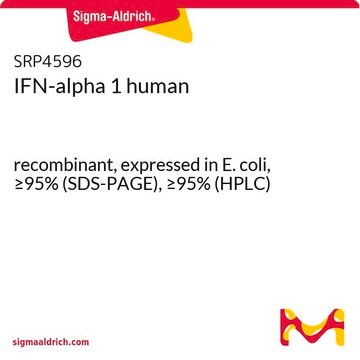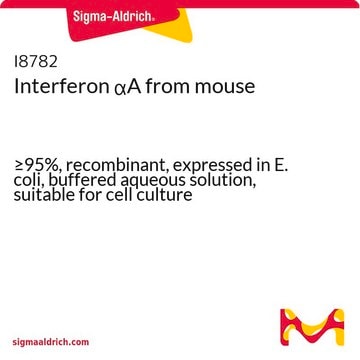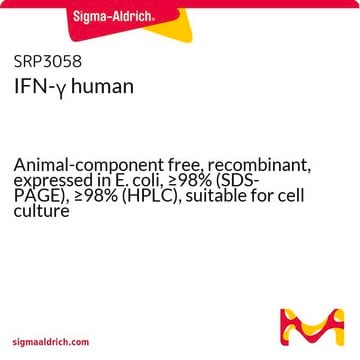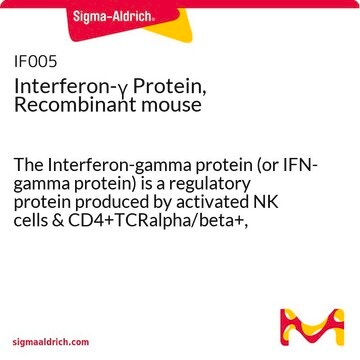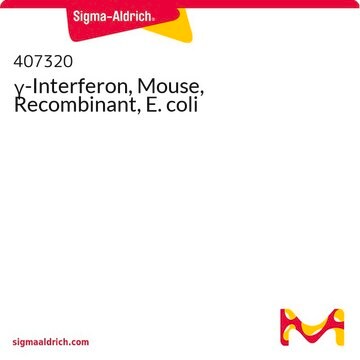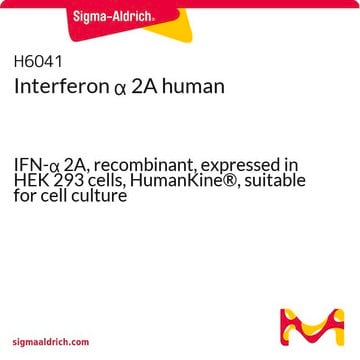I9032
Interferon β from mouse
≥95%, recombinant, expressed in E. coli, buffered aqueous solution, suitable for cell culture
Sinonimo/i:
IFN β
About This Item
Prodotti consigliati
Origine biologica
mouse
Livello qualitativo
Ricombinante
expressed in E. coli
Saggio
≥95%
Forma fisica
buffered aqueous solution
PM
~20 kDa
Confezionamento
pkg of 1 vial
Concentrazione
2560000 units/mL
tecniche
cell culture | mammalian: suitable
N° accesso UniProt
Condizioni di spedizione
dry ice
Temperatura di conservazione
−70°C
Informazioni sul gene
mouse ... Ifnb1(15977)
Descrizione generale
Applicazioni
- in the stimulation of bone marrow-derived dendritic cells (BMDCs)
- as a cytokine to stimulate differentiation of podocytes
- to stimulate splenocytes
- to induce the activation of cholesterol 25-hydroxylase, by in vitro stimulation of bone marrow-derived macrophages, dendritic cells and CD11c+ lung macrophages
- to stimulate splenocytes, in order to study the secretion and regulation of IFN-γ
- to intranasally pre-treat neonatal mice, to study its effects on the protective actions of Lactobacillus rhamnosus GG (LGG)
- as a standard to treat MEF-Mx2-luc-BKO reporter cell line for IFN-β measurement, in response to human adenovirus-5 (HAdV-C5)
Azioni biochim/fisiol
Stato fisico
Risultati analitici
Codice della classe di stoccaggio
10 - Combustible liquids
Classe di pericolosità dell'acqua (WGK)
WGK 1
Punto d’infiammabilità (°F)
Not applicable
Punto d’infiammabilità (°C)
Not applicable
Dispositivi di protezione individuale
Eyeshields, Gloves, multi-purpose combination respirator cartridge (US)
Certificati d'analisi (COA)
Cerca il Certificati d'analisi (COA) digitando il numero di lotto/batch corrispondente. I numeri di lotto o di batch sono stampati sull'etichetta dei prodotti dopo la parola ‘Lotto’ o ‘Batch’.
Possiedi già questo prodotto?
I documenti relativi ai prodotti acquistati recentemente sono disponibili nell’Archivio dei documenti.
I clienti hanno visto anche
Il team dei nostri ricercatori vanta grande esperienza in tutte le aree della ricerca quali Life Science, scienza dei materiali, sintesi chimica, cromatografia, discipline analitiche, ecc..
Contatta l'Assistenza Tecnica.
